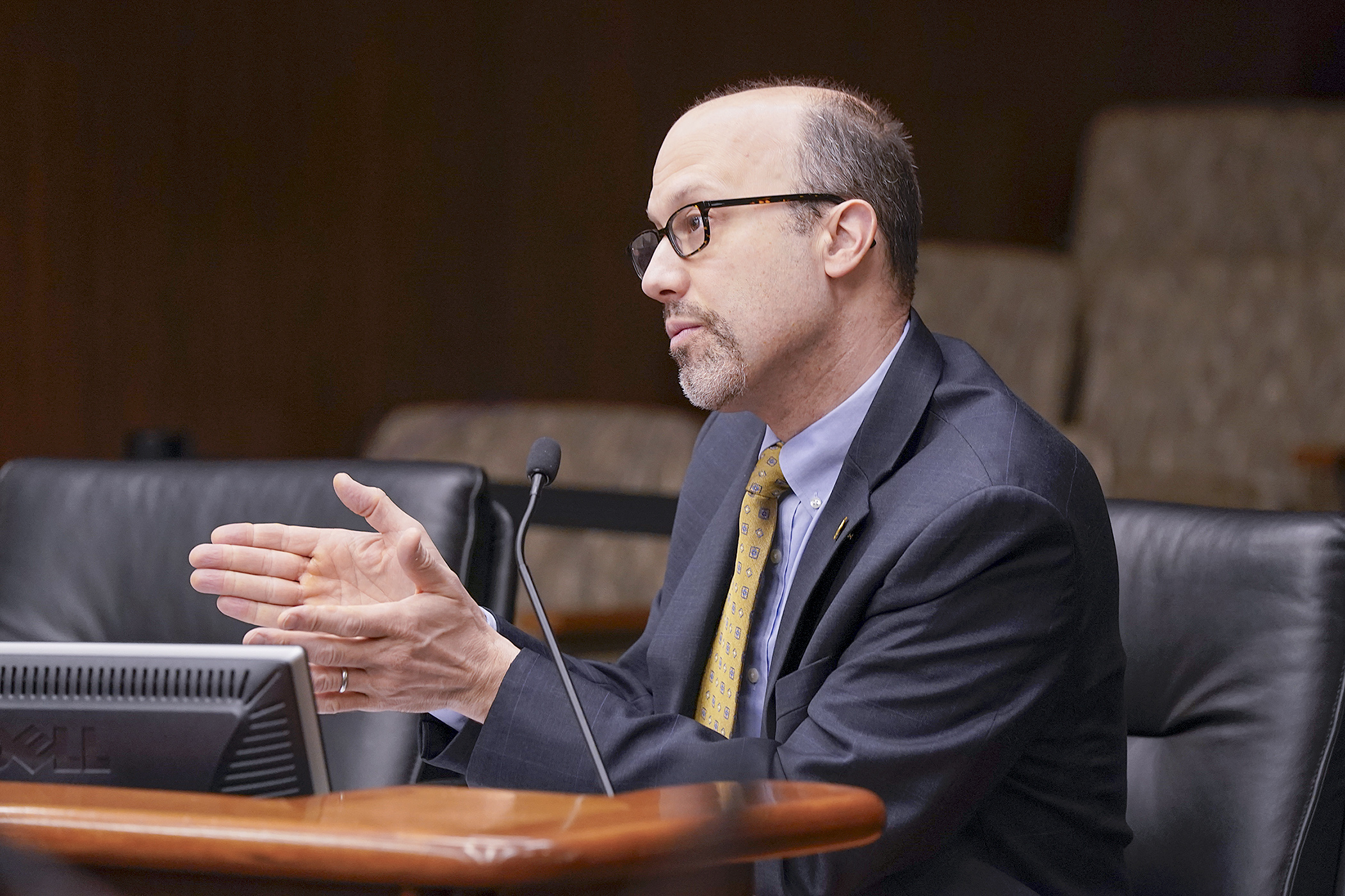House judiciary panel approves proposal to reform reviews of child deaths

A child dying due to maltreatment is a tragedy.
Unfortunately, the state’s dysfunctional process to investigate such a death only compounds the tragedy, says Rep. Dave Pinto (DFL-St. Paul).
By law, the death or near death of a child in Minnesota must be investigated by a Department of Human Services child mortality review panel. However, Pinto said the process for reviewing these cases is “complicated, cumbersome, confused, and problematic.”
Via HF5033 he proposes several process reforms, including requiring the department to begin a review “regardless of the status of any pending litigation or other active investigation.”
Pinto said this change would fix a serious flaw in current law requiring all pending litigation to be settled before a review can begin. “A death might have occurred eight or nine years ago by the time the review issues a report.”
The House Judiciary Finance and Civil Law Committee approved the bill, as amended, Tuesday and sent it to the House Children and Families Finance and Policy Committee.
County agencies are also required to review such incidents through local child mortality review panels, and the bill would require these local teams to conduct reviews jointly with the state’s child mortality review panel.
The bill would make fatal or near fatal investigations more effective, Pinto said, by adding more protections to individuals and state agencies providing evidence to a review team.
For example, a person who provides information could testify in a courtroom about an incident but couldn’t be compelled to reveal in court any information provided to the review team.
Those protections are important, said Rep. Brian Johnson (R-Cambridge), because they would allow people to speak freely to a review team.
Johnson, a former law enforcement officer who has worked on investigations in such cases, supports the proposed procedures that would permit state reviews to take place concurrently with ongoing criminal cases and appeals. However, he would prefer the reviews not start until after a first criminal court case is decided.
The bill would also give immunity from any civil or criminal liability to a person providing information to a review team, provided they acted in good faith.
Improving the child protection system
Looking at the big picture, Pinto believes it’s time to undertake a comprehensive review of the state’s child protection system.
To that end, the bill would “invite” the establishment of a Supreme Court Council on Child Protection “to develop a comprehensive blueprint to improve Minnesota’s child protection system.”
Rep. Jamie Becker-Finn (DFL-Roseville) noted the judicial system is a separate and independent branch of government, and thus the Legislature cannot mandate that it do anything.
“This has been a joint effort, but we are not telling the judicial branch what they must do,” she said.
However, Becker-Finn pointed out that Chief Justice Natalie Hudson submitted a letter of support for the proposal, writing that it’s “a recognition of the integral role that the judiciary plays in the child protection ecosystem and affirms our shared responsibility to protect and promote the welfare of children in Minnesota.”
Related Articles
Search Session Daily
Advanced Search OptionsPriority Dailies
Speaker Emerita Melissa Hortman, husband killed in attack
By HPIS Staff House Speaker Emerita Melissa Hortman (DFL-Brooklyn Park) and her husband, Mark, were fatally shot in their home early Saturday morning.
Gov. Tim Walz announced the news dur...
House Speaker Emerita Melissa Hortman (DFL-Brooklyn Park) and her husband, Mark, were fatally shot in their home early Saturday morning.
Gov. Tim Walz announced the news dur...
Lawmakers deliver budget bills to governor's desk in one-day special session
By Mike Cook About that talk of needing all 21 hours left in a legislative day to complete a special session?
House members were more than up to the challenge Monday. Beginning at 10 a.m...
About that talk of needing all 21 hours left in a legislative day to complete a special session?
House members were more than up to the challenge Monday. Beginning at 10 a.m...